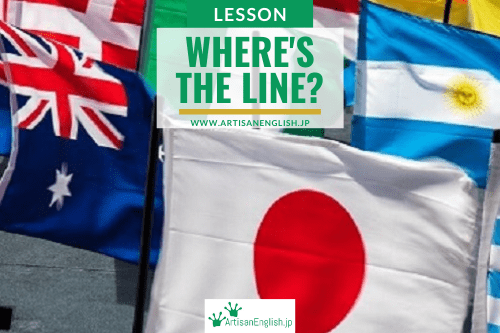
Lesson: Where’s the line?
We’re living in an increasingly cosmopolitan world. It’s becoming increasingly difficult to look at someone and know what country they come from. Even in Japan, there is an increase in mixed-race, international marriages which result in so-called ‘non-Japanese-looking’ children. People are continually crossing national boundaries to work and live in other countries. So, what does it mean to be from a country? Is it DNA, race, or culture? If nationality lines are becoming blurred, where do we draw the line when it comes to representing a country in international competition? As an example, Naomi Osaka has Japanese citizenship but doesn’t speak Japanese well and grew up in the States. She has a Japanese mother but did not grow up surrounded by Japanese culture. Would she be a good representative of Japan at the Tokyo Olympics? In the same vein, the Brave Blossoms, Japan’s National Rugby team, has many members who were not born in Japan and genetically and visually are not ‘Japanese.’ They also do not have Japanese citizenship, which means they do not have a Japanese passport. Is that team genuinely representative of Japan? What does ‘representative of Japan’ mean, exactly? Let’s see what we can hash out during our conversation.
YouTube / iTunes / Spotify / Radio Public / Pocket Casts / Google Podcasts / Breaker / Overcast
Listen to ArtisanEnglish.jp posts & lesson intros here.
Example Article
Each conversation topic is based on a theme. In order to help students acquire a basic understanding of that topic, four media articles are provided for them to read. I will never test you on the articles, but I strongly suggest you book lessons far enough in advance to give yourself enough time to properly prepare. The better prepared you are, the more benefit you will receive from our conversations.
Below is an example article for this conversation topic.

